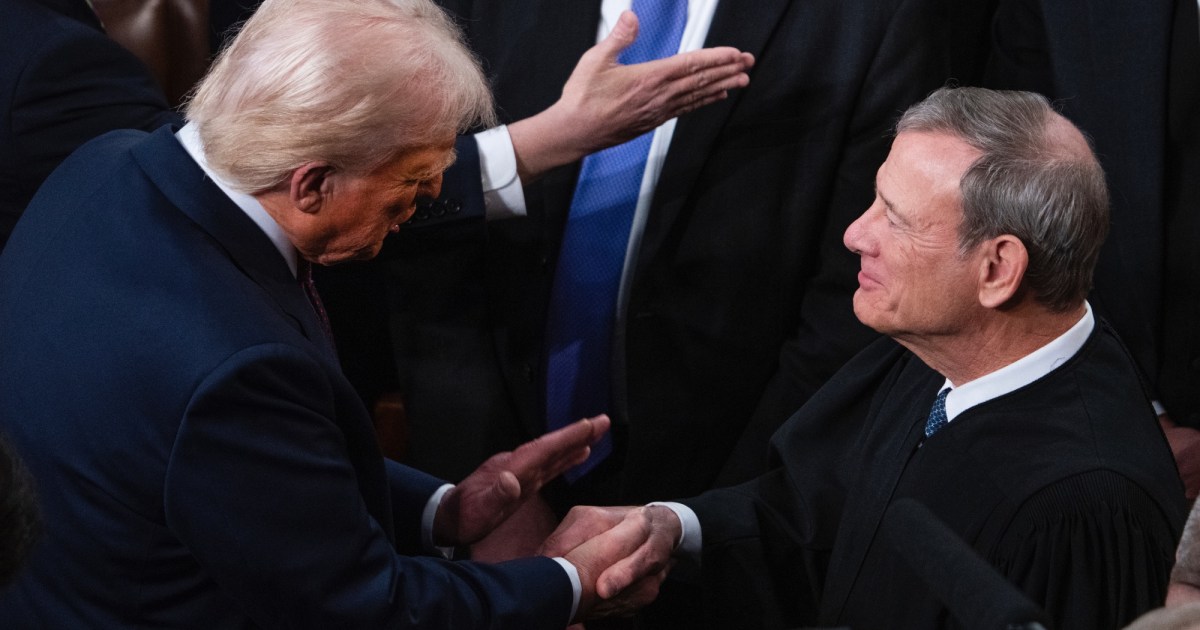The Trump administration argues it has the right to deport certain immigrants to far-flung, dangerous locations such as Libya, South Sudan, and an infamous labor prison in El Salvador without the due process rights guaranteed by the US Constitution, immigration law, and international humanitarian treaties the United States has signed. In these countries, they face the possibility of torture, indefinite confinement, and death. Late on Monday, the GOP-appointed majority on the Supreme Court told the administration to go right ahead.
“Each time this Court rewards noncompliance,” Justice Sotomayor warned, “it further erodes respect for courts and for the rule of law.”
The majority’s one-paragraph order is stunning. Without a word of explanation, the justices may have condemned thousands to torture or death. Despite the GOP majority’s silence as to their motives, the balancing tests they weighed are evident. The majority found that the prerogatives of the president are more important than the lives of untold thousands, as well as domestic and international law. The majority also placed little importance on the fact that the Trump administration has defied and obfuscated lower court orders, both in this case and others on the president’s removal powers. The likely result is to encourage the administration to ignore future court orders—placing both individuals and the rule of law in jeopardy.
“The Government has made clear in word and deed that it feels itself unconstrained by law, free to deport anyone anywhere without notice or an opportunity to be heard,” Sotomayor wrote in a dissent, which Justices Elena Kagan and Ketanji Brown Jackson joined. “Only the District Court’s careful attention to this case prevented worse outcomes. Yet today the Court obstructs those proceedings, exposing thousands to the risk of torture or death.”
The case, DHS v. D.V.D., emerged from the Trump administration’s attempts to deport people subject to final removal orders to so-called third countries, when an immigrant cannot be removed to the country designated in their removal proceedings. If no country with a connection to the immigrant will take them, then the government seeks any nation that will. The issue in this case is whether the government must give non-citizens a chance to object to their removal to the third country before they are taken there. In late March, a Boston-based district court judge named Brian Murphy ordered the government to provide this due process before sending immigrants with final removal orders to third countries. Despite Murphy’s intervention, Trump officials subsequently flew four immigrants covered by the order to El Salvador, nearly sent 13 to Libya, and put another six on a flight to South Sudan—all without providing the due process the judge ordered.
The Trump administration chose to ignore the district court’s order that it provide reasonable notice of removal and an opportunity to challenge it on grounds of fear of torture whenever it undertook such a removal operation. It also asked for a stay of that order, all the way up to the Supreme Court. It’s this request that at least five of the six Republican justices granted in an unsigned order on Monday, over the fierce dissent of the Democratic appointees.
“I’m not prone to hyperbole,” Georgetown law professor Stephen Vladeck wrote on Monday night, then proceeded to call this ruling “disastrous.” It’s a technical, unsigned order, but its effects will be vast. Vladeck notes that because the Supreme Court—in another unsigned, unexplained order from late May—allowed President Trump to revoke humanitarian parole for half a million people, many of those people may now be subject to removal to violent, authoritarian countries without any opportunity to object.
The decision is shocking on several levels. First, it condemns an untold number of people to possible torture or death in other countries, some roiling with violent unrest, others governed by brutal authoritarian governments. Second, it seems to find more legal weight in the president’s broad removal powers than in the guarantees of due process set out by Congress and even the Constitution. And it does this not in making a final decision on the law but in issuing an unsigned, unreasoned decision on what the government can do while the legal issues are litigated. Finally, by granting the Trump administration’s request—despite its flouting of lower-court orders—the majority condones this lawless behavior. It rewards the government for defying the courts, which will only encourage more defiance.
“The Government has made clear in word and deed that it feels itself unconstrained by law.”
As Sotomayor warned, the rule of law loses when court orders are ignored. “The Government’s misconduct” in this case threatens the rule of law, she wrote. But “so too does this Court’s decision to grant the Government equitable relief. This is not the first time the Court closes its eyes to noncompliance, nor, I fear, will it be the last. Yet each time this Court rewards noncompliance with discretionary relief, it further erodes respect for courts and for the rule of law.”
Just hours after Monday’s decision, the New York Times published a whistleblower’s account of how senior Justice Department officials chose to ignore court orders and deal untruthfully with judges. Senior DOJ official Emil Bove, whom Trump had nominated to a federal appellate judgeship, told a group of department attorneys in March that impending deportation flights must take place “no matter what,” the whistleblower alleges. Should a court try to halt those deportations, according to the whistleblower, Bove said that “D.O.J. would need to consider telling the courts ‘fuck you’ and ignore any such order,” The following day, a judge did order a halt to the flights and he was, in fact, ignored.
The whistleblower, former DOJ attorney Erez Reuveni, also detailed the Justice Department’s efforts to ignore a district court judge’s orders in the very case the Supreme Court decided late Monday. Over multiple days, Reuveni alleges, he tried to ascertain that guidance on Judge Murphy’s order requiring people slated for deportation get both a notice of removal to the third country and an opportunity to object had been disseminated to ICE and that it was being followed—only eventually to find out that guidance was being withheld, and that the order had indeed been ignored.
It’s embarrassing for the court to ignore the government’s obvious defiance of the district court, only for a newspaper to, a few hours after the justices’ order dropped, clue them into the behind-the-scenes obfuscation purposefully undertaken to facilitate that defiance. As the past few months have shown, a majority of the court will chastise this administration if their own instructions are ignored, but, as this case and others demonstrate, apparently have no qualms about undermining the authority of their colleagues on the lower courts.
In furtherance of that trend, hiding behind an unsigned, unreasoned opinion, the GOP-majority gave the Trump administration a green light—not only to put thousands in harm’s way, but to continue to thumb its nose at every court but their own.















